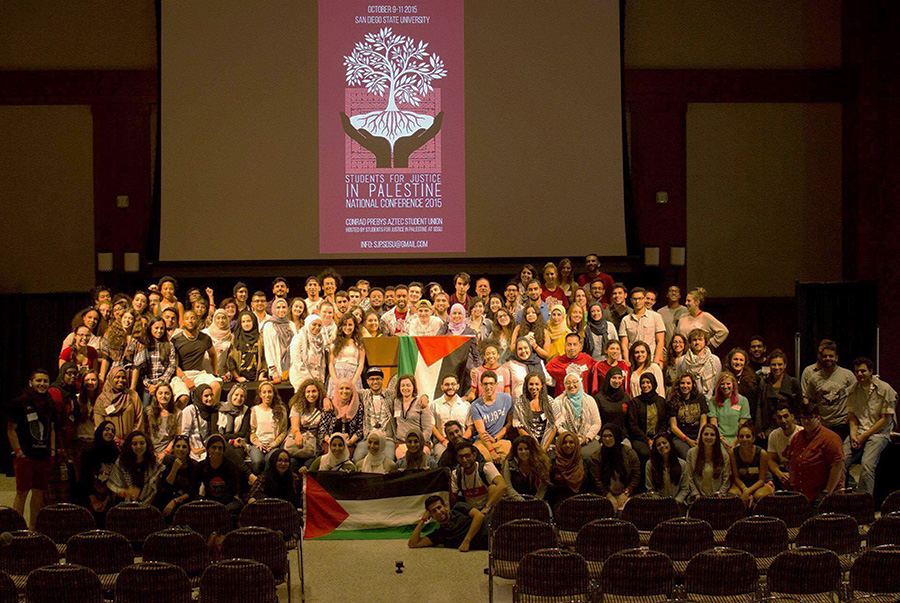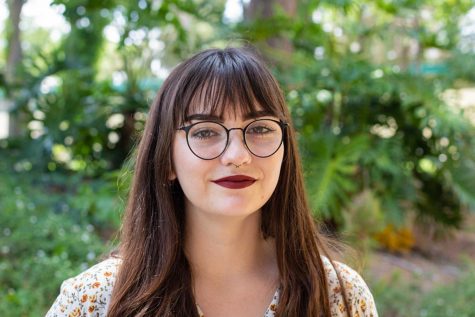Most students’ awareness of Students for Justice in Palestine stems from the large wall SJP displays in the middle of the North Library walkway each spring.
This wall, in many aspects, largely encapsulates what SJP seeks to do as an organization.
“The whole organization is based on our goal of educating students on the history of the Israeli-Palestinian conflict and on the history of Palestine pre-creation of Israel,” said SJP President Fareed Nabulsi.
Nabulsi describes the wall as “more of an artistic approach to educate people on what life is like in Palestine and the harsh lives that the Palestinian people have to deal with back there.”
“The main thing is liberation for the Palestinian people and freedom and equality for them, because that’s definitely not happening right now,” Nabulsi said.
The wall is not the only way SJP spreads their message.
The organization regularly hosts screenings and lectures. But they are best known by many for their political demonstrations.
“Any way that we can get our word out there and get that attention to raise questions on campus or have people come up to us with questions; we love that,” Nabulsi said.
As with any political organization, SJP has been met with opposition.
“We have always dealt with opposition and are definitely prepared to continue dealing with it,” Nabulsi said.
Though directed at the Muslim Student Association, rather than Students for Justice in Palestine, one recent case of such opposition occurred last month,the San Diego State College Republicans called the SDSU Muslim Student Association to officially condemn a terrorist act that had occurred in Barcelona, Spain.
“I think these outrageous statements they’re making are to try and stay relevant on campus,” Nabulsi said. “We’re just going to chose to ignore that.”
In another such instance, many students were dissatisfied with former university president Elliot Hirshman’s response to a situation in 2016 in which flyers were posted around SDSU that identified certain as students as terrorists.
Nabulsi said he hopes university administration learned from what he felt was a mistake.
“I wouldn’t say that we can expect a better response,” Nabulsi said. “But it’s happened once and we hope that our administration has learned from the past experience and how they acted before that they can change that and act accordingly this time.”
Overall, SJP said it seeks to continue with their goal of spreading their message, educating students and answering questions into the 2017-18 school year.
“Our opinions will not change regardless of the environment around us,” Nabulsi said. “People are going to have different opinions and we’re open to have dialogue for that.”
SJP meets every Monday at 12 p.m. in the Center for Intercultural Relations.









